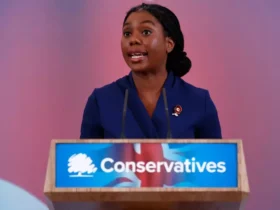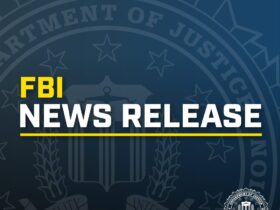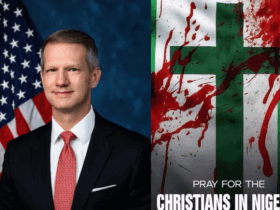Mexican President Claudia Sheinbaum stated on Tuesday that President Donald Trump’s recent executive order aiming to designate drug cartels as foreign terrorist organizations would only affect Mexico if there is close coordination between the two nations.
She emphasized that Mexico would uphold its sovereignty and independence while striving for collaboration with the United States following the order signed on Monday.
“We all want to fight the drug cartels,” Sheinbaum said at her daily press briefing. The U.S. “in their territory, us in our territory.”

Trump’s order highlighted Mexican drug cartels and other Latin American criminal groups like Venezuelan gang Tren de Aragua and Salvadoran gang Mara Salvatrucha (MS-13).
Recall In 1993, the United States government froze Bola Ahmed Tinubu’s assets as a result of a court case asserting that the American government had “probable cause” to believe Tinubu’s American bank accounts held the proceeds of heroin dealing.
He settled with the U.S. government and forfeited about $460,000 later that year.
The order says they “threaten the safety of the American people, the security of the United States, and the stability of the international order in the Western Hemisphere.”
The order did not list any Mexican cartels by name but said Cabinet secretaries would recommend groups for designation as terrorist organizations in the next 14 days. It was among a slew of executive orders Trump signed Monday to kick off his administration, several of which focus on securing the southern border.
“The Cartels have engaged in a campaign of violence and terror throughout the Western Hemisphere that has not only destabilized countries with significant importance for our national interests but also flooded the United States with deadly drugs, violent criminals, and vicious gangs,” the order reads.
The potential impact of the proposed measures against cartels remained unclear, but there was concern they could further restrict access to the U.S. for individuals from countries where these groups operate.
The proposal was part of a broader set of measures, including declaring an emergency at the U.S. southern border, threatening 25% tariffs on Mexico and Canada starting February 1, and discontinuing the CBP One app, which had allowed migrants to schedule asylum appointments before reaching the border.
Former President Trump also pledged to carry out mass deportations and floated the idea of military intervention in Mexico to combat cartels—an idea strongly rejected by Mexican officials, including Claudia Sheinbaum.
Critics have voiced concerns that designating cartels as terrorist organizations could justify U.S. military action against them.
Vanda Felbab-Brown, an expert on organized crime at the Brookings Institution, warned the designation could have “huge implications from trade to migrants.” She noted that cartels’ dominance in the lucrative migrant smuggling trade has made it nearly impossible for individuals traveling through Mexico or other Latin American countries to avoid paying fees to these groups.
This could pose a significant problem for migrants and asylum seekers. According to Felbab-Brown, paying such fees might disqualify them from seeking asylum under the new rules.
“Trump can essentially prevent the vast majority of undocumented migrants trying to cross the U.S. border from getting asylum,” she said.
Mike Vigil, a former head of international operations for the U.S. Drug Enforcement Administration, expressed skepticism about the practical impact of a terrorism designation. He argued that many of the powers it would grant to U.S. authorities are already in use for counter-narcotics efforts, meaning the designation might not significantly alter day-to-day operations against cartels.
Follow the Parallel Facts channel on WhatsApp: https://whatsapp.com/channel/0029VaCQSAoHgZWiDjR3Kn2E








Leave a Reply